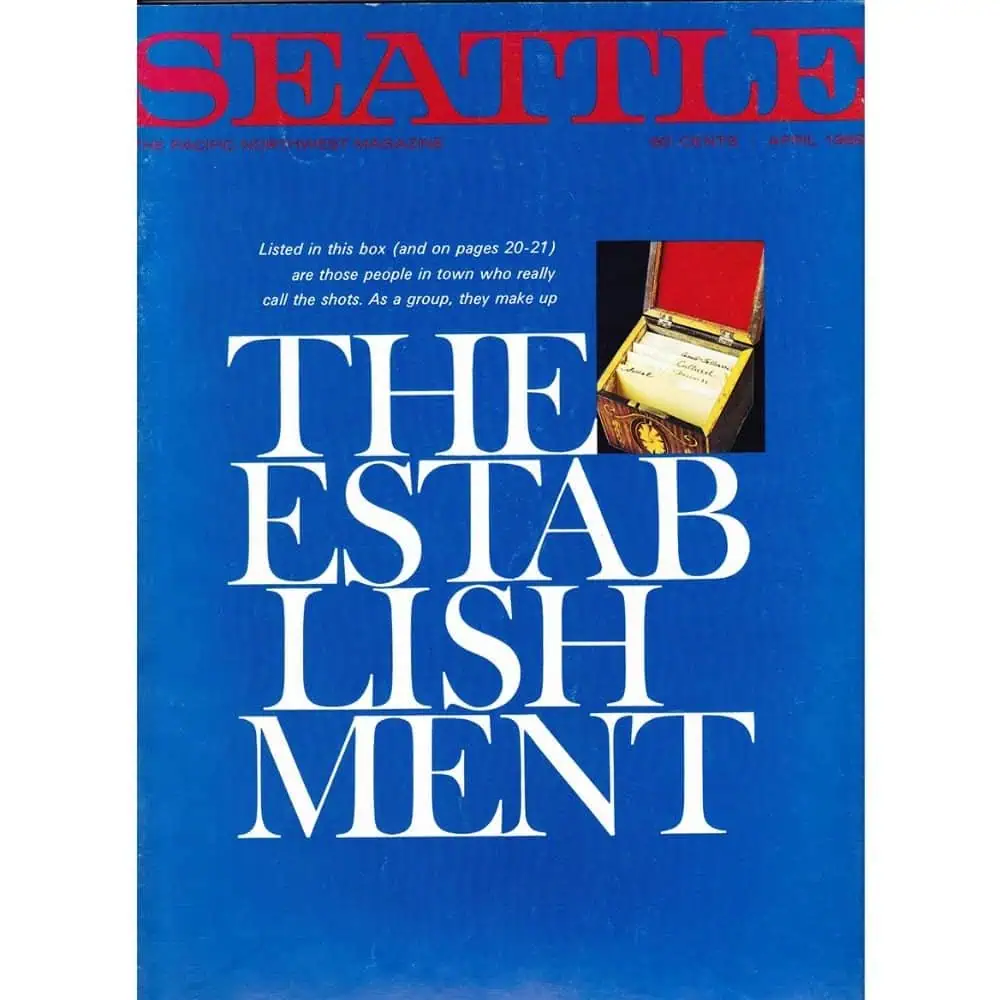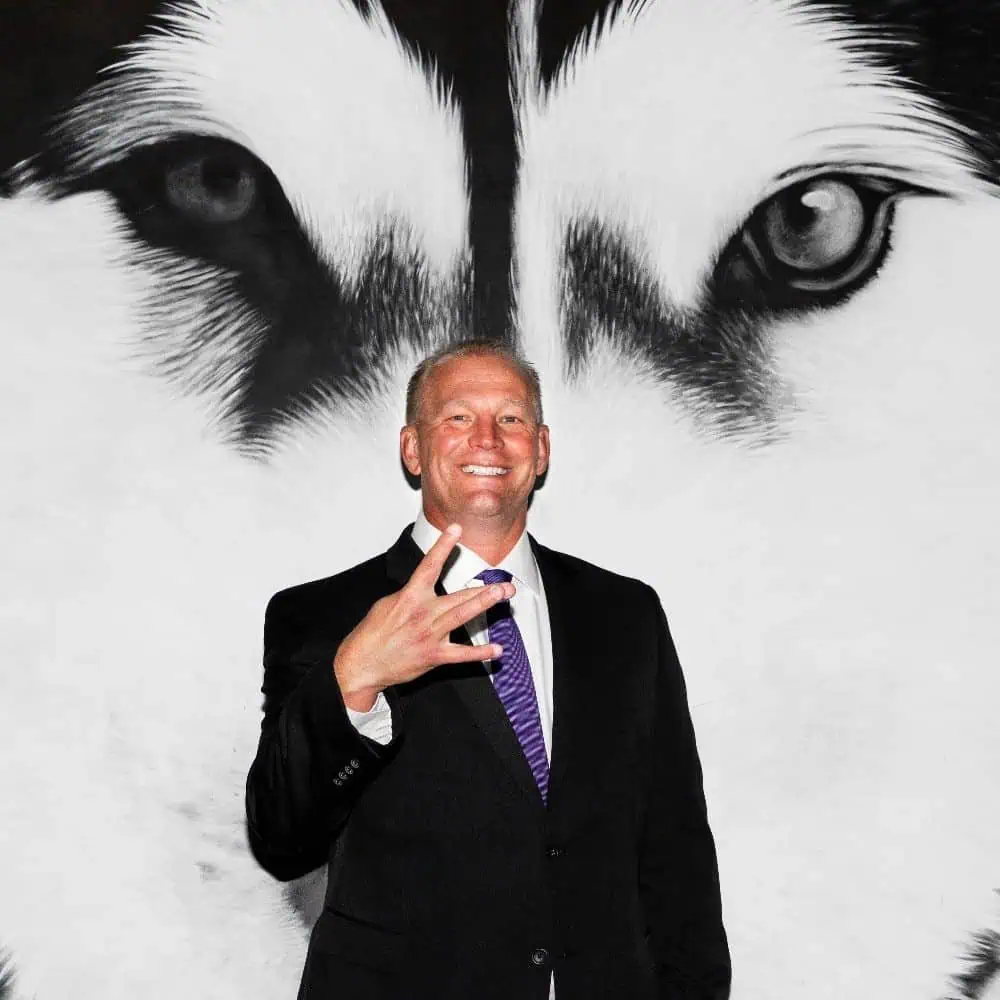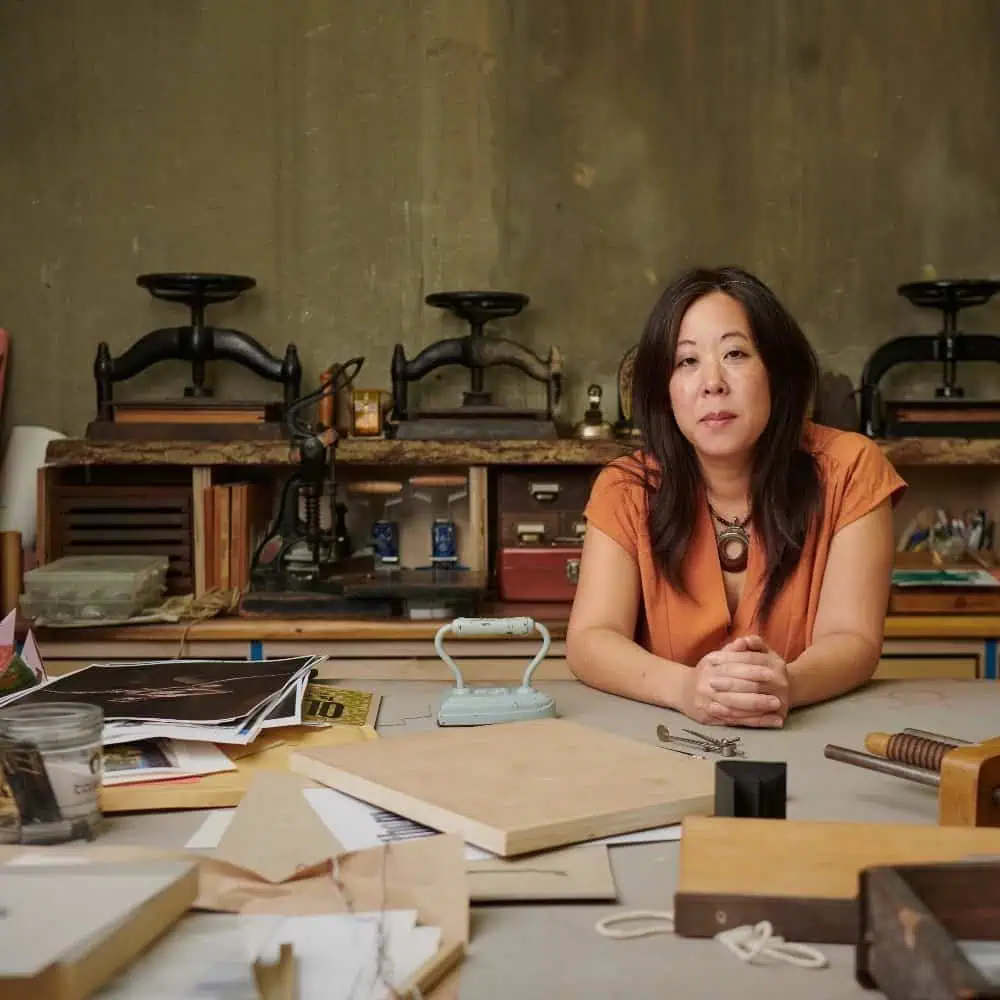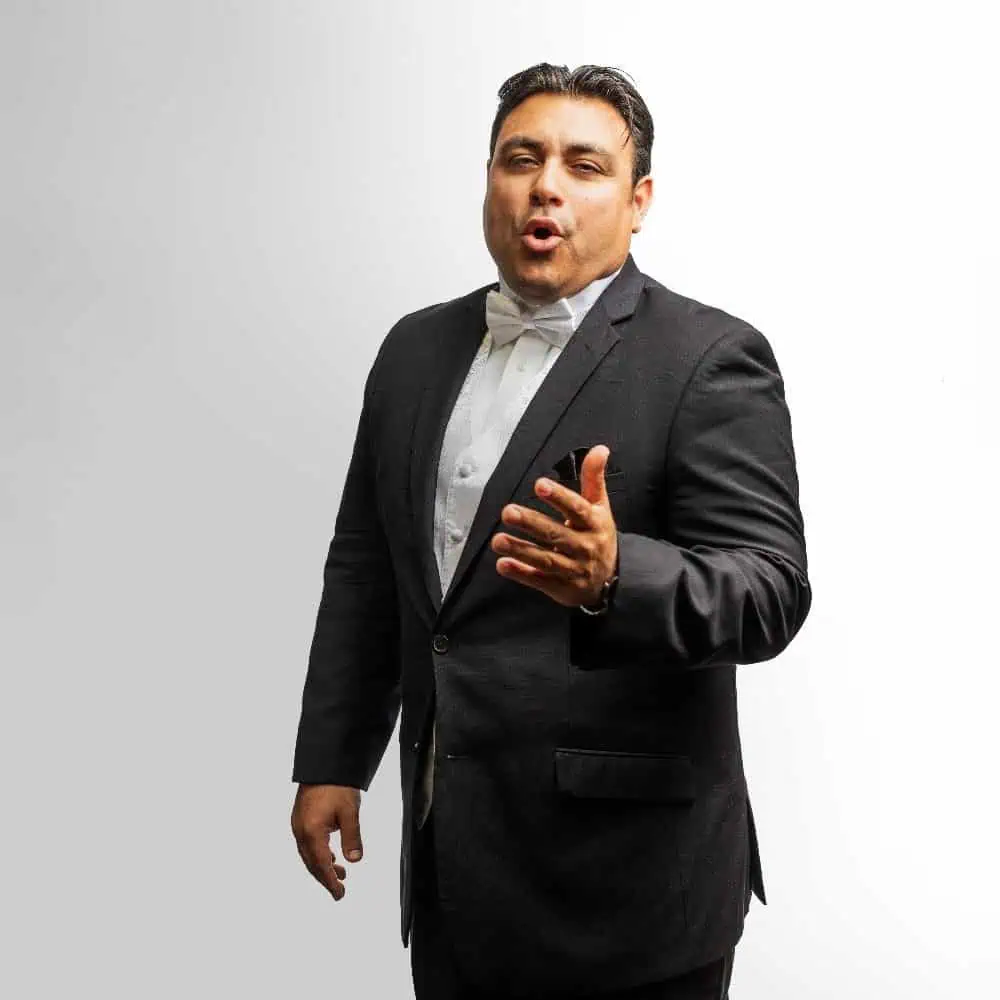Most Influential
Most Influential, Equity: The Women Behind OSAYS
Co-founders Mari Horita, Mimi Gan, Maya Mendoza-Exstrom, Betti Fujikado, Katherine Cheng
By Heidi Mills January 10, 2024
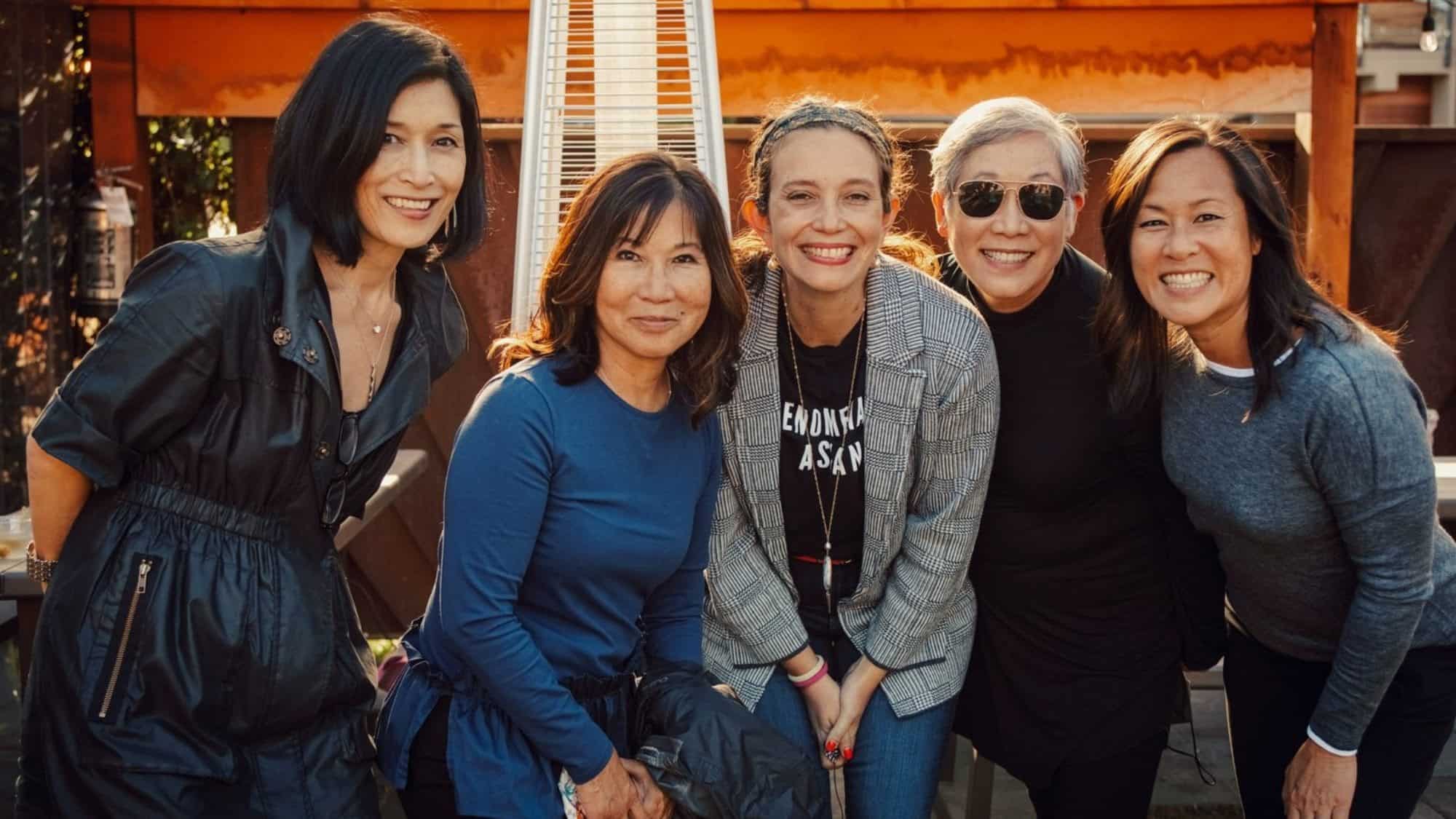
This article originally appeared in the January/February 2024 issue of Seattle magazine.
They are storytellers. They are Asian American women. And they want to give their community a voice.
Five Seattle friends are working together to encourage civic engagement and share the stories of fellow Asian Americans. After witnessing rising hate against Asian Americans both locally and around the country, they felt compelled to act.
“When we saw people we knew personally being treated so poorly, we knew we had to do something,” says Betti Fujikado, former CEO of Seattle ad agency Copacino Fujikado and co-founder of Success Cohorts.
The women are Fujikado, Mi2Media co-founder Mimi Gan, Seattle Mariners Vice President of People, Culture and DEI Katherine Cheng, Seattle Sounders FC COO Maya Mendoza-Exstrom, and Seattle Kraken Senior Vice President of Social Impact and Government Relations Mari Horita. They banded together several years ago to create Our Stories are Your Stories, or OSAYS, to feature two-to-five-minute videos of local Asian American individuals talking about their lives and experiences. The idea was to bring positive attention to a community that had been embattled by rising hate crimes.
“To be seen is so powerful,” Fujikado says.
While the OSAYS website is not currently being updated, the women are now tackling Democracy Cup 2024. They plan to showcase local minority sports stars urging people to vote in next fall’s election. With a limited amount of time and resources, the OSAYS team decided that the election was where they could wield the most influence. Communities of color vote at a lower rate than the broader community.
“We look at each other and say, with only so many hours in the day, what is the most important thing?” Fujikado says. “It’s voting.”
The women launched the first Democracy Cup campaign in 2020, hoping to influence both that year’s election and the census, which directly impacts how funds are allocated to minority communities. They created the group Seattle Unite, which partnered with 19 social and racial justice organizations and all of Seattle’s major sports teams.
Thanks to Horita, Mendoza-Exstrom, and Cheng, they already had direct connections to the Kraken, Sounders, and Mariners, and the Reign, Storm, and Seahawks jumped on board, too. A diverse group of Seattle sports stars recorded nonpartisan messages encouraging people to vote and fill out their census forms.
For Democracy Cup 2024, the women plan to follow a similar format, but hope to expand beyond just Seattle and Washington state, and push similar campaigns in other regions. They aim to release content by next summer and continue sharing the videos up to the November election.
Both Gan and Fujikado are passionate about inspiring minority voters and young people to vote. The two met because Fujikado’s twins and Gan’s oldest daughter were on the same soccer team as children, and their now adult daughters give them inspiration for Democracy Cup. Gan looks at her daughters and sees hope.
“I have always felt that young people will come through for us,” Gan adds.
While the OSAYS women are currently focusing their attention on next year’s election, they remain proud of the stories they’ve collected on the OSAYS website. The five friends began working on OSAYS in 2021, after a string of high-profile Asian hate crimes. In March 2021, a man went on a rampage at two spas and one massage parlor in the Atlanta area. Six of the eight people killed were women of Asian descent.
The event horrified the five women. At the same time, they watched anti-Asian hate happening more and more often to people they knew, in their own community. Business owners in the Chinatown- International District were victims of racial slurs and graffiti. By the time the five women gathered for a Zoom call, they were convinced it was time to act.
“We thought that we needed to do something,” Gan says. “I think we are all at a point in our lives where we realize the importance of being more bold, and trying to make an impact.”
OSAYS launched its first video interviews with Asian Americans in May 2021, in conjunction with Asian American and Native Hawaiian/Pacific Islander Heritage Month. They followed suit by producing new short stories in the five weeks leading up to May 2022 and May 2023. Fujikado dubbed their efforts, “five women, five weeks.”
The OSAYS women have now interviewed a diverse group of individuals. Some are mixed race, like dancer Jennie Pegouskie talking about never really feeling like she completely belonged in the Black or Korean communities. Some Asian Americans speak about their early struggles toward feeling proud of their heritage. Former Gov. Gary Locke recalled his third-grade teacher, who would ask the students what they ate for breakfast and slap their hands with a ruler if they weren’t eating traditional American fare like bacon and eggs. Locke recalled feeling ashamed of his fish and vegetable breakfast and asking his parents why they had to eat such weird food at home.
The OSAYS women hired mostly Asian Americans as their crew, paying fair wages to 30 to 40 people working on the project. For social media outreach, they recruited help from Success Cohorts, a coaching and networking program for diverse, early-career individuals.
Though Fujikado and Gan would love to keep OSAYS going for years to come, they’d like others to take the helm. Gan is a board member of the Wing Luke Museum, and she hopes volunteers there step forward. Gan and Fujikado would like younger Asian Americans to assume leadership roles and shape OSAYS in new ways.
“OSAYS will not cease but we have to figure out if the next generation of storytellers want to expand it,” Fujikado says.
Despite that, Gan and Fujikado don’t see themselves slowing down on projects that are important to them. Though Fujikado is retired from running an ad agency, she’s not adopting a life of leisure.
“In retirement, you get to choose the things that are important to you,” Fujikado says. “I am driven to serve my community.”

